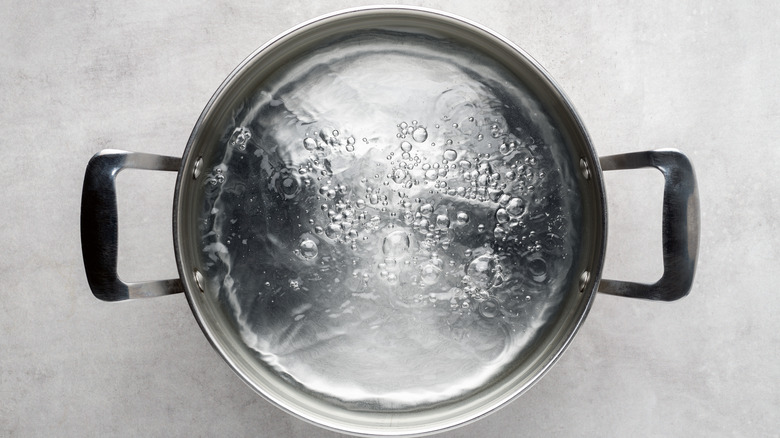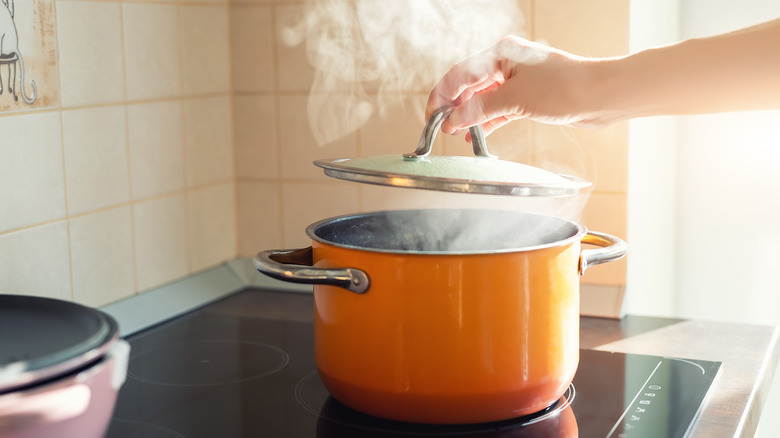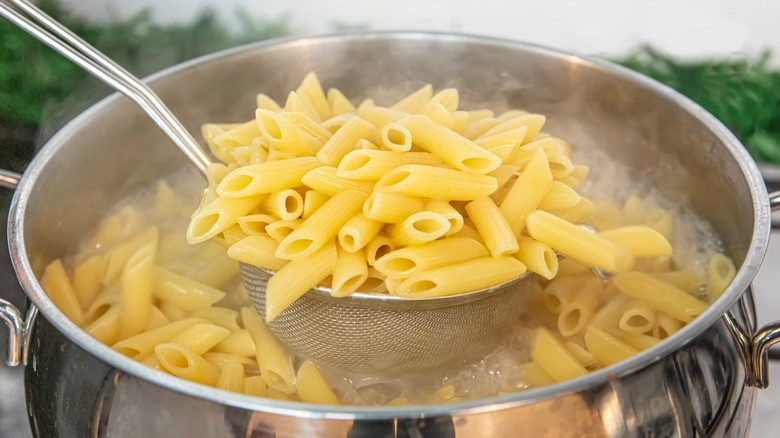Here's How To Make Your Water Boil Faster
You've heard the age-old saying: A watched pot never boils. And while it may seem true that the quicker you want the time to pass, the slower it goes, there are a number of factors at play in determining how fast a pot of water will boil.
Boiling water is one of the easiest cooking skills you can develop; simply fill a pot of water, place it on the stove, and let the heat do its thing. However, if you're looking for a way to speed up the process, there are a few tricks to cutting down on precious minutes.
The most obvious factor is heat. Using a single match to boil a pot of water versus an open fire will certainly yield different boiling times. To boil quickly, Dummies says to make sure your stove is set to high heat. Once you've moved past the obvious, there are a number of other ways you can speed up the boil.
How to make water boil faster
Beyond the high heat, you'll want to make sure you place a pot on the lid to shave off some boiling time. Because the water vapor can't escape, the lid helps keep heat inside the pot, causing the water to boil quicker. According to America's Test Kitchen, using a lid shaves off just over a minute of time.
You should also make sure you're only using as much water as you need. Boxed pasta has the instructions for cooking right on the box, so take a look at how much water you need rather than taking a guess (and overfilling the pot). Less water will take less time to boil.
Depending on what you're cooking, you might also be able to boil water in a shallow pot. Martha Stewart explains that boiling shallow water over a greater surface area will heat the water quickly, given that more of the water is closer to the stove's heating source. (Still, this method won't work for every food.)
Should you add salt to boiling water?
Will salting your water help it boil faster? For all intents and purposes, no. While salt does make the water get hotter more quickly, it also raises the water's boiling point; according to Live Science, there is hardly a difference between the two boiling times. Technically, the salted pot will boil slightly faster, but only by a few seconds.
Still, that doesn't mean you should stop salting your water. Though it won't do much to the boiling time, it can greatly impact the flavor of the dish you're cooking. Salting pasta water, for example, allows the pasta to absorb that salty flavor during the cooking process; the result is a deeper flavor as compared to pasta that was salted at the end of the dish's preparation.
As for how much salt your pasta water needs, the answer depends on what you're cooking. Bon Appétit says that, for pasta water, you should add anywhere from 2 tablespoons to 4 teaspoons of salt per 1 gallon of water (the type of salt you use matters, too). According to Blue Apron, if you're blanching vegetables, they'll only be in the water for a short time, so you should use 1/2 cup of salt per 5 quarts.


